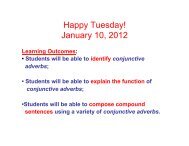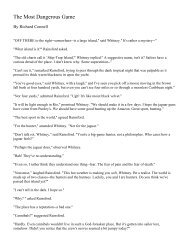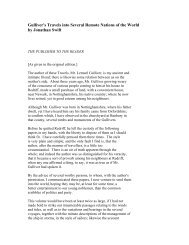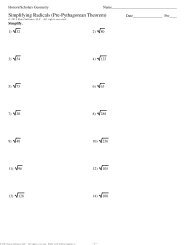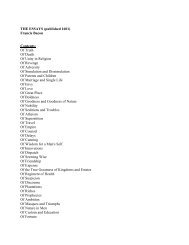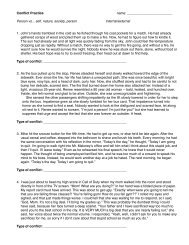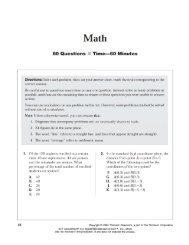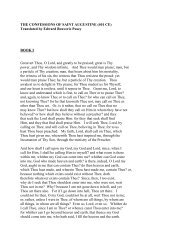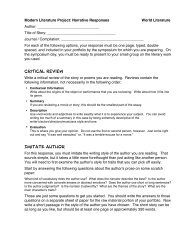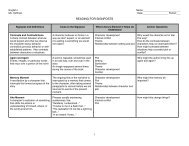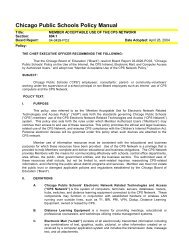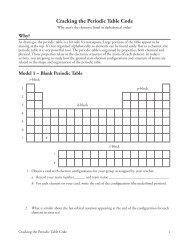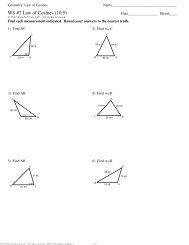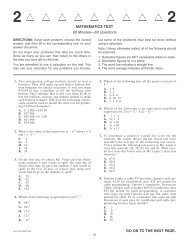CONFUCIUS THE ANALECTS
CONFUCIUS THE ANALECTS
CONFUCIUS THE ANALECTS
Create successful ePaper yourself
Turn your PDF publications into a flip-book with our unique Google optimized e-Paper software.
sovereign God, that the sinner I dare not pardon, and thy ministers,<br />
O God, I do not keep in obscurity. The examination of them is by<br />
thy mind, O God. If, in my person, I commit offences, they are not to<br />
be attributed to you, the people of the myriad regions. If you in the<br />
myriad regions commit offences, these offences must rest on my<br />
person.'<br />
4. Chau conferred great gifts, and the good were enriched.<br />
5. 'Although he has his near relatives, they are not equal to<br />
my virtuous men. The people are throwing blame upon me, the One<br />
man.'<br />
6. He carefully attended to the weights and measures,<br />
examined the body of the laws, restored the discarded officers, and<br />
the good government of the kingdom took its course.<br />
7. He revived States that had been extinguished, restored<br />
families whose line of succession had been broken, and called to<br />
office those who had retired into obscurity, so that throughout the<br />
kingdom the hearts of the people turned towards him.<br />
8. What he attached chief importance to, were the food of the<br />
people, the duties of mourning, and sacrifices.<br />
9. By his generosity, he won all. By his sincerity, he made the<br />
people repose trust in him. By his earnest activity, his<br />
achievements were great. By his justice, all were delighted.<br />
CHAP. II. 1. Tsze-chang asked Confucius, saying, 'In what way<br />
should a person in authority act in order that he may conduct<br />
government properly?' The Master replied, 'Let him honour the five<br />
excellent, and banish away the four bad, things;-- then may he<br />
conduct government properly.' Tsze-chang said, 'What are meant by<br />
the five excellent things?' The Master said, 'When the person in<br />
authority is beneficent without great expenditure; when he lays<br />
tasks on the people without their repining; when he pursues what<br />
he desires without being covetous; when he maintains a dignified<br />
ease without being proud; when he is majestic without being fierce.'<br />
2. Tsze-chang said, 'What is meant by being beneficent<br />
without great expenditure?' The Master replied, 'When the person<br />
in authority makes more beneficial to the people the things from<br />
which they naturally derive benefit;-- is not this being beneficent without<br />
great expenditure? When he chooses the labours which are proper,<br />
and makes them labour on them, who will repine? When his desires<br />
are set on benevolent government, and he secures it, who will



